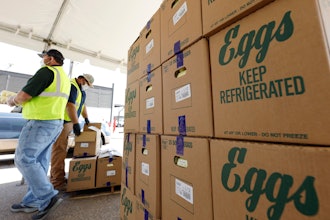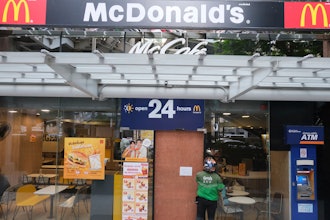HOUSTON (AP) — Congress members from the largest rice-growing states are urging Iraq to resume buying U.S. long-grain rice, saying the country's "unreasonable" quality standards put American farmers at a competitive disadvantage.
The Associated Press received a copy Friday of the letter signed by a bipartisan group of 12 lawmakers and sent to Iraqi Minister of Trade Khair Alla Babaker earlier this week. The letter says there was a 77 percent drop in rice sales to Iraq between 2010 and 2011, even though "not long ago, Iraq represented the largest market for U.S. rice."
"We liberated their country for one thing," said Congressman Ted Poe, R-Texas, one of the lawmakers who signed the letter. "We would think they would consider the United States in trade since we spent billions of dollars not only to liberate their country, but to rebuild their infrastructure, from their oil industry on."
The Iraqi Grain Board has said it decided to buy cheaper basmati rice from India. Iraq hasn't bought U.S. rice since late 2010.
The Iraqi move comes as U.S. farmers struggle with drought, unusual heat, rising production costs, dropping prices and a shrinking export market. But the farmers are most upset over Iraq's decision because of the Iraq War.
The 12 legislators from Arkansas, California, Louisiana, Mississippi, Missouri, Texas and Virginia say the rice industry has worked closely with Iraq to develop a relationship, including conducting meetings and workshops with Iraqi Grain Board officials, and touring with them at U.S. rice fields and mills. The letter says Iraq has stringent requirements on the grain. It also requires the rice to be pre-bagged, even though nearly all foreign markets allow this to be done at the destination.
"These unreasonable quality terms increase risk to shippers, causing them to hedge uncertainty with price premiums, which creates a competitive disadvantage," the letter says.






















